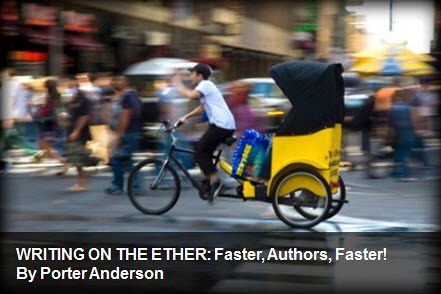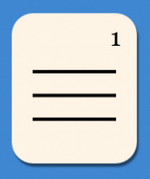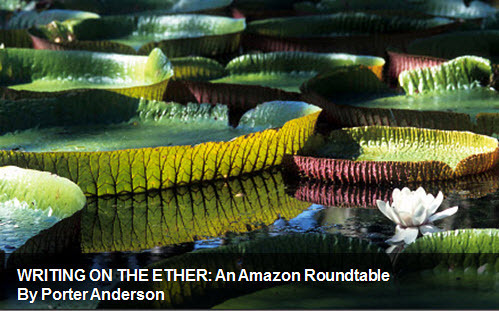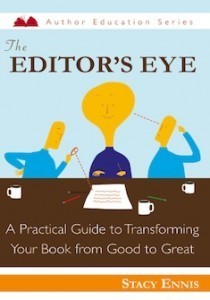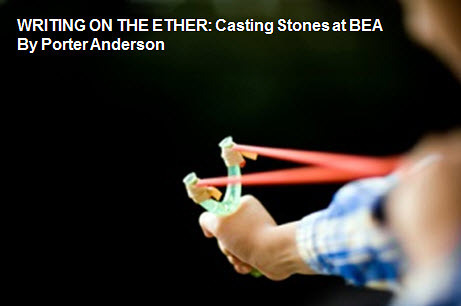Jane Friedman's Blog: Jane Friedman, page 176
June 17, 2013
How to Connect With More Readers in Just 5 Minutes

Photo by hatalmas / Flickr
Today’s guest post is by Toni Tesori (@duolit) of Duolit, which offers a free guided workbook, the Weekend Book Marketing Makeover.
You’ve been plugging away, day after day, trying to build the fan base you know your work deserves, but it’s not going the way you’d pictured when you started out. It’s like you’ve tried everything under the sun (including blogging, tweeting, and participating in promotion after promotion), but you can’t find passionate readers for your work.
It’s not that your book isn’t any good (you and your editor spent tons of time making sure it is) and it’s not that readers are uninterested in your genre (your author friends are selling books by the truckload).
Perhaps the problem is that your message simply isn’t connecting with readers on a personal level. Your tweets, blogs, and e-mails aren’t convincing them to check out your work.
It’s a problem I see quite often, and I’ve even given it a name: Superstar Author Syndrome. That might sound a bit backward, since you’re not (yet) on any sort of author walk of fame, but hear me out.
Authors with SAS commonly have an issue connecting with readers because their blogs, social media updates, and promotional materials sound too vague, almost corporate. There’s nothing personal or engaging for a potential reader to “hook” onto and remember.
That’s because those of us in charge of our own book promotion may be modeling our communications on our big-name brethren, most of whom have entire PR teams crafting those blog posts and whatnots for them. For Stephen King or James Patterson, using that impersonal, third-person speak in their website, tweets, or blogs may be entirely appropriate.
But for those of us trying to build a grassroots following, it’s a one-way ticket to obscurity.
Luckily, there’s an easy way to inject life into your marketing efforts.
Narrow your target
To find the perfect balance between professionalism and personality, craft your messages with just one crazy-dedicated fan in mind.
This may seem counterintuitive. After all, you’re probably trying to attract as many readers as possible. Won’t targeting a single reader exclude thousands of others who are nothing like that person?
Surprisingly, narrowing your promotional focus in this way helps you better connect with more readers by giving you (1) focus and (2) direction.
Gain focus
When you tailor your marketing decisions to one person, you’ll attract a wider variety of readers because your communications will sound far more personal and engaging. You’ll sound like a real human being having a conversation with folks who love your book.
Find direction
Targeting one reader helps you find marketing direction. Trying to figure out where to spend your limited book promotion time can be overwhelming and confusing, but having a unique person to center your marketing decisions around makes this task much easier. Instead of trying to figure out what appeals to everyone in your target market, you’ll be able to ask a single person. And it’s a lot easier to figure out what appeals to one person than thousands, right?
3 steps to create a No. 1 fan profile
Here’s how to craft a reader profile (kind of like a character profile) that will uncover your biggest fan. Keep in mind there is no right or wrong answer here. If you’ve met a few of your readers, base your profile on one of those folks. If you’re just starting out, simply imagine someone you think would love your work. And if that’s too difficult, but you’re a fan of your genre of work, answer the questions as yourself.
1. Picture someone reading your book and devouring every single word. Someone who’s dreading the book coming to an end.
2. Describe the person you see just like she’s a character in your book. If you have a preferred character profiling method, you may use that, or you may choose to answer the following questions:
Where is she reading your book? Describe the setting. Is she at home, on a train or out in the park? Is she in a chair, a bed, the bath?
How did she find your book? Is she reading an e-book or a paperback?
Fill in her personal details. What’s her name? Where does she live? How old is she? What does she look like?
3. While continuing to picture your No. 1 fan, think of two or three ways to connect with that person. Think about the following:
How does she choose books? Does she search for new titles on her own or follow the recommendations of her friends or family?
Where does she hang out online? Facebook, Twitter, GoodReads, blogs? What about offline? Is she in a book club? Does she have a favorite bookstore?
What are her other hobbies and interests? Are there any ways you can use those to reach out to other readers like her?
Now that you have a basic profile of your No. 1 fan, feel free to spend a bit more time fleshing it out. The more detailed your reader profile, the more effective it will be for helping you make those difficult marketing decisions.
The next time you craft a tweet, write a blog post, send an e-mail, or share an update on Facebook, think about your biggest fan and the profile you created. What type of content would she want to read (and share)? What wording would appeal to her? What promotion would she gladly take part in?
The answers of your biggest fan are sure to connect you with others just like her.
In the comments, let’s hear about your No. 1 fan. Do any of her characteristics surprise you? How will you use your reader profile to better focus your book marketing and promotional efforts?
The post How to Connect With More Readers in Just 5 Minutes appeared first on Jane Friedman.
June 13, 2013
WRITING ON THE ETHER: Faster, Authors, Faster!
Table of Contents
An Exploratory Ether
How Many Questions Do We Have Here?
So How Are You Holding Up?
An Exploratory Ether
Get your stuff and come with me. Today, I want your input on something.
Entrepreneurial authors are being driven to write more books and write them faster. Is this good?
That premise and question seem obvious to me. But when I went looking for what I thought I’d seen, I discovered that it’s all around us—but rarely right in front of us.
I tweeted this colleague and that blogger, asking, “Can you help me find such-and-such piece you had on this?” and “Don’t you recall seeing a post about this?” and “Can you remember where you read somebody writing this?”
Thx 4 RT @thekja: Publisher: “You write too many books!” Readers: “Write more, faster!” …a great analysis kriswrites.com/2013/03/07/the…
— KristineKathrynRusch (@KristineRusch) March 9, 2013
Of course, in tweeting them, I revealed myself to be a big fat narcissist. Did you see this story at Science Daily this week? You’re So Vain: Study Links Social Media Use and Narcissism.
Facebook is a mirror and Twitter is a megaphone, according to a new University of Michigan study exploring how social media reflect and amplify the culture’s growing levels of narcissism.
Pay this no mind. With the kind of winters they have in Ann Arbor, these people barely know a narcissist from a snowman or -woman’s elbow. I’m going to send back my MA in protest to that ice castle of a university, just as soon as I put down this megaphone.
No wonder we’re all so tired. RT @drmabuse: 90% of the world’s total data has been generated in the past two years. sciencedaily.com/releases/2013/… — Sarah Weinman (@sarahw) June 9, 2013
Where were we? Ah. The pressure to write faster, write more. So here I was messaging my fellow narcissists and snowpeople, asking about the mounting pressure on authors to speed up. What came back to me tends to support my point about the dodgy way with which this idea is working its way through the community. It’s the mosquito in the shower. You catch a glimpse of it out of the corner of your eye. But you can’t stare at it head-on. You’ve got soap to think about. And yet, write more books and write them faster is buzzing around your ears.
Being an Angelino means any random movie might wind up with Ice Cube and Woody Harrelson arguing at the top of your street. — Carolyn Kellogg (@paperhaus) June 11, 2013

Roz Morris
Here is Roz Morris in May 2012, in Writing fast, writing slow – and why one book a year suits hardly anyone:
I’ve been blogging about slow writing quite a lot. But slow isn’t the only way to write decent books. There are a lot of authors who turn in perhaps two or more a year (I once did four). If you’re writing in a well defined genre, your craft is well established and you know what you’re going to do with the ideas, it’s perfectly possible to whip your novel out in six months or faster. Especially if you’re writing a series.
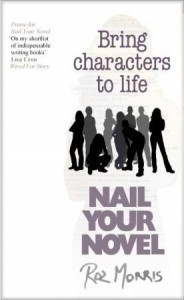 Morris was just here at JaneFriedman.com yesterday with an excerpt from her new instructional book, Nail Your Novel: Bring Characters to Life. Friedman presented an excerpt, How to Identify and Remove Trivial Detail From Your Stories. Not that Ether readers would ever have a trivial detail in a story. In her earlier 2012 article, Morris had gone on to pick up something that’s now revving that buzzy concept around us. While the traditional, stately progress of an author in Old Publishing might have been something on the order of a book a year, our digital disruption (an energy of distribution, remember) has brought us binge entertainment. Which, for authors, Morris writes, means:
Morris was just here at JaneFriedman.com yesterday with an excerpt from her new instructional book, Nail Your Novel: Bring Characters to Life. Friedman presented an excerpt, How to Identify and Remove Trivial Detail From Your Stories. Not that Ether readers would ever have a trivial detail in a story. In her earlier 2012 article, Morris had gone on to pick up something that’s now revving that buzzy concept around us. While the traditional, stately progress of an author in Old Publishing might have been something on the order of a book a year, our digital disruption (an energy of distribution, remember) has brought us binge entertainment. Which, for authors, Morris writes, means:
Readers don’t want to wait. They are used to gobbling their entertainment in the grip of a craze – they want all of Lost, right now. And these kinds of writers get more leverage the more titles they can offer. Publishers may be losing something if they can’t feed those fans right now. I know plenty of writers who find themselves hamstrung by this and turn to indie publishing in order to satisfy their fans and make the most of their productivity.
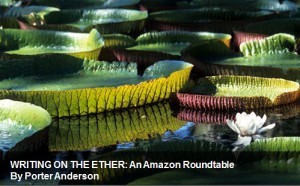 I’ve heard this recently from best-selling entrepreneurial authors including CJ Lyons and Hugh Howey of the Amazon Roundtable covered in this Ether installment.
I’ve heard this recently from best-selling entrepreneurial authors including CJ Lyons and Hugh Howey of the Amazon Roundtable covered in this Ether installment.
In an era of direct author-reader communication, the impatience of valued readers is in authors’ faces. Granted, having a big readership demanding more of your work isn’t the worst problem an author could have. But it can create a lot of market pressure on a creative routine.
Outside self-publishing, much of the industry! the industry! isn’t yet accustomed to moving fast enough, such authors say, to satisfy an avid, well-cultivated community of fans.
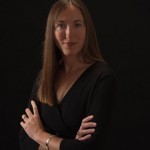
Elizabeth Spann Craig
Handling popular series, however, comes with a lot of questions. Elizabeth Spann Craig, cozy mystery series ace, has written Good Points and Downsides to Rapid Series Releasing and Studying Algorithms. Craig, whose mysteries are read in both traditionally published and self-published series, starts with some advantages of a “rapid release.” Think of the Netflix House of Cards all-episodes-at-once release as the model. Advantages, she lists:
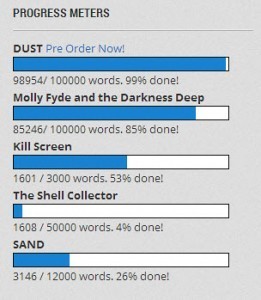
HughHowey.com features these Progress Meters on which Howey can display for readers how far along he is on various books-to-come.
(1) “New life for old series.”
(2) “Writers can integrate a more natural storyline.” [Meaning that if readers don't have to wait, then a cliffhanger may not be necessary at the end of each installment.]
(3) “In some ways, books are better-suited to marathon consumption than television is…because of the manner in which books are shared with friends.” [Binge-viewing of TV series doesn't do much for last-night's-episode chatter at the water fountain, Craig is saying. But binge-reading can be done by book clubs or other groups simultaneously.]
Some disadvantages to rapid-release, Craig writes, include:
(1) What if your quickly-released series is a dud?…What if you write four or five books, release them in rapid fire or even simultaneously, and the books don’t resonate with readers?
(2) Quality control. If you turn off readers with one book, they’re unlikely to buy the next in the series.
(3) Stress and working with tough self-imposed deadlines. The need for real discipline…tough enough when we get them from a publisher. We have to really have some discipline and focus when we’re meeting our own deadlines and trying to write a string of books…whether we’re releasing them in rapid succession or not.
(4) How calculating and how completely bottom-line-focused can we be and retain a creative edge (and enjoyment in our process and writing)?…at what point are we sacrificing our own need for creative originality if we’re studying algorithms/data/sales, and writing/producing for a demanding consumer market?
Ce matin, petit salut à nos voisins du @museelouvre de puis les toits du #MuseeOrsay twitter.com/MuseeOrsay/sta… — Musée d’Orsay (@MuseeOrsay) June 11, 2013
How Many Questions Do We Have Here?
We have more than one mosquito in the shower.
(1) Write fast to build inventory, whether in series or not.
(2) Write fast for fast-release, usually in series (as Craig is evaluating).
(3) Write fast because your best sales angle is having ever more books available.
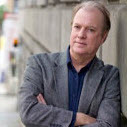
James Scott Bell
One of the best proponents of that third point is James Scott Bell.
And sure enough, when I made my tour-de-Twitter, looking for some of the back-issue blog postings I’d seen on the matter, he turned out to have an excellent catalog of helpful guidance on various points of writing fast and writing a lot:
Cool Papa Writing: ”Whether you’re an outliner, a seat-of-the-pantser, or anything in between, when you’re getting those first pages down, burn rubber.”
Type Hard, Type Fast: ”Fast does not mean hack work (it can, of course, but not necessarily). I’m not discussing the editing process, either. Concentrated effort is what I’m talking about.”
How To Write a Novel in a Month (for NaNoWriMo 2012): “Make the very first day the most productive day of your writing life.”
How To Work on More than One Book at a Time: “This is especially important in the new era of self-publishing. The winning indie formula is quality production over time. Upward direction is a function of producing new work, the best you can do, in various forms (short stories, novellas, novels, non-fiction). So work on more than one project at a time.”
How to Make Money Self-Publishing Fiction: ”Figure out what you can comfortably write per week, given your particular circumstances. It doesn’t matter the number, just find it. Then up that by 10% and divide into six days.”
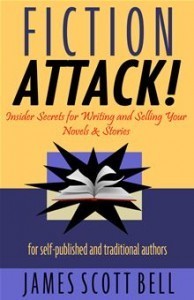 Bell’s latest instructional book has the brief title Fiction Attack! Insider Secrets for Writing and Selling Your Novels & Stories — For Self-Published and Traditional Authors.
Bell’s latest instructional book has the brief title Fiction Attack! Insider Secrets for Writing and Selling Your Novels & Stories — For Self-Published and Traditional Authors.
And when I check his author page at Amazon, I’m seeing 40 hits. This guy’s bench is deep. It’s so deep, and Bell is such a chipper soul—a real favorite of mine among colleagues—that I think it may not be in his character to dwell as much as some others might on the potentially darker sides of high-and-fast production.
Bell never advocates quantity over quality.
But he also knows a lot more about keeping the plates spinning than most of us.
#GameofThrones fan? Check this out: George R.R Martin, please write faster – a music video: youtu.be/j7lp3RhzfgI #GoT — Bookworld (@book_world) June 11, 2013
So How Are You Holding Up?

Sean Platt
Recently Jane Friedman reminded me of The Self-Publishing Podcast that’s been riffing along for more than a year now (close to 60 shows, congratulations, guys). It features a trio of cheerfully unguarded speakers, good company for an hour. They always have that 4 p.m. sound, when everybody’s too tired to mind what he says or how he says it. Punchy and informative.

David Wright
There’s Sean Platt and his serial co-writer of “dark, character-driven, edge-of-your-seat serialized thrillers with WTF cliffhanger endings” David Wright. They’re joined by author Johnny B. Truant. The trio of Platt, Wright, and Truant hosted a typically free-wheeling breeze-shooting edition of the show last month about work process and strategies.

CJ Lyons
Posted on May 9, this edition is No. SPP 054, titled Exploding Your Growth with Bestselling Author CJ Lyons. (She’s everywhere, is she not? Let that be a lesson to us.) At around 26 minutes in, these four good folks start talking about the speed at which they’re producing. I’m going to merge a few comments here for you for brevity:

Johnny B. Truant
(Lyons) Lately, with my New York City deadlines [for one of her traditional publishers], I’ve been given about three to four months to write a full-length thriller, which is about 90,000 to 100,000 words…I like to do what Stephen King calls a “fermenting draft”…stick it in a drawer for a good month or two and you come back to it as a reader with fresh eyes…but that takes so long and I just don’t have time anymore with my deadlines…(Truant) I would have loved to do that for Unicorn Western. I felt like I read it to close to it…(Platt) I totally agree. I think all of us would love to slow down enough to be able to ferment all of our stuff.
This podcast edition also has Platt’s interesting explanation of how he and Wright came to find their fast-turn work focused on “dark horror” and their plan to create a different “channel”—”because,” says Platt, “it would be better to be known as a storyteller than as a dark horror author.” It’s an interesting look at the kind of enforced niche experience that high-volume serialists can experience, never mind the pace.
@ellie_di @johnnybtruant @kyeli Turns out the faster you write, the better it is. GOGOGOGOGO!!! — Sean Platt (@SeanPlatt) March 26, 2013
In asking for your input on our topic today about the impact of mounting pressure for speed and output on authors, I want to return to a post I’ve mentioned before. It’s one of the most plaintive and probably predictive comments along these lines I’ve found so far.

Barbara O’Neal
Award-winning author Barbara O’Neal is one of my colleague-contributors at Writer Unboxed, and in her Boundaries and Burnout post in April, she wrote, in part:
I’m astonished by the schedule some of us are setting up for ourselves—doubling the word counts every day, adding to the number of books published each year. I get it—I am doing the same thing—but in the back of my brain, I keep hearing the foghorn warning of — Burnout. Working writers are under a lot of pressure these days to produce, keep producing, produce more—and also keep up with their blogs(s), Tweet, post to Facebook, maintain a mailing list and newsletter, and show up at any writer’s conference that asks, because you can’t miss a single sale. It’s exhausting to even write it all down. It’s exhausting for the girls in the basement, or the muses, who cannot be whipped into producing and producing and producing without some consequences.
@38enso There is an agent involved here who knew which house would offer the best ebook royalties. — Ginger Clark (@Ginger_Clark) June 12, 2013

Nathan Bransford
And what finally brought me to this whole issue this week was author Nathan Bransford’s short post on Monday, When It Feels Like You’re Never Doing Enough. In my usual way (snowy narcisissm to the Michiganders), I tweeted just his first line:
I very rarely go to bed feeling like I’ve done enough in a day.
I’m still getting retweets of that line with a “yup” or “yes” or “me, too” attached. I get them from folks I don’t know. Sometimes I get them from folks I do know, including our good colleague and author Chris Guillebeau. Yes, Guillebeau, known for making it all work, is feeling this. That’s significant. To quote the old bomb squad T-shirt, if you see this guy running? Try to keep up.
In the train restaurant, 90 min. delay: Couple of Russians drunk, Germans showing pics of their cars to irritated Brasillians. Dark outside. — Sebastian Posth (@sposth) June 10, 2013
So as I hand off to you, I want to give Bransford a little length here. Cameo Tweeting abatement time. (“Clear!”)
Slow down and really read this. Watch him parse the emotional and spiritual exhaustion many are battling in this new shakeout, the struggle for hyper-performance both in creativity and productivity:
I feel guilty after a weekend where I didn’t get enough done. It frustrates me how long it takes to write a novel. (Or, ahem, a guide to writing a novel. Almost done, swear!).
It never feels like there are enough hours in the day, or days in the weeks, or weeks in the months, or months in the year. Time slips away, and with it a chance to accomplish something or edge closer to your dream.
Social media only adds to the pressure. People are completing novels and making New York Times bestseller lists and curing cancer while juggling on a unicycle and it all looks so effortless and who needs sleep anyway??
…When you try to do too much, you risk your enjoyment of what you’re doing. Burn yourself out trying to write your novel and you may never finish.
Look, the business exigencies are simply there: more books, more sales. None of us can argue with that. But sprung from the restraints of Old Publishing’s bovine pace, is the mad dash into burnout all we have to offer entrepreneurial authors?
Lyons, Howey, their #Indie6 colleagues and cohorts—I love what these guys are teaching us as their careers catch fire and throw off new light for everybody else. But these may be personalities particularly suited to multi-channeled creativity and luge-track speeds in Michigan.
Meanwhile, in the homes of the brave, Bransford’s post may be the mosquito finally at the center of the target. Put down the soap for a minute and help us suss out a practical response here.
Remember the early XM Radio slogan? “Everything. All The Time.” Are we really going to be able to sustain this?
@rebecsmart @4fifty1 Operating in one dimension is so 2012. Go 3D.
— DonLinn (@DonLinn) June 12, 2013
Main image: iStockphoto – GrafficX
The post WRITING ON THE ETHER: Faster, Authors, Faster! appeared first on Jane Friedman.
June 12, 2013
How to Identify and Remove Trivial Detail From Your Stories
Today’s guest post is excerpted from Nail Your Novel: Bring Characters to Life by Roz Morris (@NailYourNovel).
Writers are often advised to fill their scenes with rich detail—to show, not tell. However, if taken too far, you can clutter or bloat your story with too much irrelevant description. If you provide scene upon scene of character downtime, each conversation word for word, and every beat of inconsequential action, this can be exhausting or boring for the reader.
One of my clients wrote a long scene about her protagonist spending a quiet evening at home, which amounted to several pages of inconsequential phone calls. Brenda called and the protagonist talked to her. Then her stepfather, then a colleague, then the residents’ association. What did they say? Nothing much. It was just humans catching up.
It was certainly realistic, but the reader would be overwhelmed or wondering what importance these calls have to the story. They would be trying to keep track of everyone—she has an Auntie, Mum, Bizzy the catsitter, Pete the friend, Steve the other friend. He said this, she said that. They talked about someone called Paul, or was it Pauline? And who exactly is Brenda?
This is fine if it’s important to make the reader ask those questions. They might advance the plot or echo the theme. But if they are only there for atmosphere, we need to treat the material differently.
The client and I reframed the scene, considering what the reader had to take away. There was nothing to learn from the dialogue, and it didn’t matter who called. But we wanted to create the impression that the character was busy and had friends. If this scene was a photographic composition, these callers might be shown in the background, maybe out of focus. They would add depth but wouldn’t distract from the important subject. So, instead of showing the conversations in real time, we shrank them to a summary. In the end, it worked best to turn them into messages, with the protagonist’s reactions:
Brenda called. She’ll want to talk about Fred but I’m too tired for that right now. Stepfather—darn, I was going to give him the number of that insurance company. Steve from the Swindon office—can’t it wait until after the weekend? The residents’ association—yes, I’d said I’d help with the posters for the garage sale. Can I get away with not calling back until tomorrow?
That thicket of trivial talk shrank to one paragraph. We now had a character with an authentic life. It indicates some of her routines and obligations and the people she might talk about, but it wasn’t given undue prominence. Indeed, it would be better included as texture in a scene where something more significant was happening. (Scenes should have more than one function to keep a story moving, plus they are more satisfying than scenes that merely sketch background.)
The same principle applies to characters with interesting pasts. You don’t have to tell us every detail. Indeed, if you pay out background in glimpses, you can create more depth because you let the reader use intuition.
In Wolf Hall, Hilary Mantel makes veiled references to Thomas Cromwell’s roguish past before he comes to King Henry’s court. She hints that he might have killed a man. Other characters occasionally refer to it as a rumor. Cromwell himself dwells on an unclear memory fragment. Later in the book, he teaches his sons that a blow that can kill, and we wonder where that knowledge came from. But we never get a “reveal” scene to explain. It remains shady, to build Cromwell’s reputation, ruthlessness, and physical presence—for the other characters and also for the reader. Cromwell also suspects he may have fathered children in those lost years. This starts to trouble him as his own children mature, and his older self feels he would like to know these unknown others. Mantel might have brought this background forwards, but she keeps it as glimpses. This creates a curious and appealing vulnerability, making Cromwell a man with a human center. Glimpsed details make a character more real and true.
Of course, you may add detail for deliberate effect. Stieg Larsson begins The Girl With the Dragon Tattoo with a character who receives mysterious pictures of flowers every year. Everything stops for a leisurely discourse on the kinds of blooms and where they grow, as though we were touring the book’s world with a magnifying glass. This eases us into the mindset of a detective, who can’t allow any observation to pass without evaluating and classifying it.
Background detail—and indeed back story—should be used with care. Too little and the characters act in a peculiar void. Too much, and the story is suffocated. But you can create inventive effects according to the way you defocus, hint, expand, and condense.
 If you enjoyed this post, I highly recommend you take a closer look at Nail Your Novel: Bring Characters to Life by Roz Morris. Click here to download a sample to your Kindle.
If you enjoyed this post, I highly recommend you take a closer look at Nail Your Novel: Bring Characters to Life by Roz Morris. Click here to download a sample to your Kindle.
The post How to Identify and Remove Trivial Detail From Your Stories appeared first on Jane Friedman.
June 10, 2013
Why Editors Focus on Page One
Today’s guest post is excerpted from Start Your Novel by author and teacher Darcy Pattison (@FictionNotes).
Editors can tell within a couple pages if a manuscript will be acceptable to them. How? What makes this decision so clear to an editor and so muddy to an author?
The first pages of a novel encapsulate much of the story and are extremely important in establishing setting, character, pace, audience, tone, and voice. First pages give readers a door knob to turn, an opening to the whole story. Editors are sophisticated, critical readers, and they immediately pick up on missteps such as the following.
1. Too little information.
Some pages leave the reader and editor alike confused. Where are we and what is going on? Perhaps the author tried to create a sense of mystery, but in the process held back too much information. Or the story has a naive narrator, but that point-of-view leaves the editor with too little information. This type of misstep means the editor puts down the book because they just don’t understand what is happening, or the importance of what is happening.
2. Too much information.
At the other end of the spectrum is too much backstory, description, flashbacks, or facts. An information dump may slow the pace and include too much, well, boring stuff. An editor only needs enough detail or background to understand the scene in progress. Editors can edit out the information dump, but they know that inappropriate exposition in the first pages will likely carry over into the rest of the book.
3. No opening scene.
Some manuscripts open with description, interior thoughts of characters, or first-person musings that continue for the entire first chapter. The opening scene is missing. These manuscripts tend to lose an editor’s attention because nothing is happening.
Striking the right balance
Successful manuscripts are well-balanced, starting with an active protagonist involved in a scene with an immediate, concrete goal. They are balanced with action, thought, a touch of motivation, a touch of description. The tone and voice are interesting, and make readers turn the page to see what happens next.
Here’s an opening from the memoir Breaking Night by Liz Murray.
I have just one picture left of my mother. It’s 4 x 7, black-and-white, and creased in different places. In it, she is seated slightly hunched, elbows touching knees, arms carrying the weight of her back. I know very little about her life when it was taken; my only clue is written in orange marker on the back. It reads: Me in front of Mike’s on 6th St. 1971. Counting backward, I know that she was seventeen when it was taken, a year older than I am now. I know that Sixth Street is in Greenwich Village, though I have no idea who Mike is.
What do you know about the story from just this much text?
Place: New York City
Time: 1986
Tone/Mood: Reflective, remembering, possibly nostalgic
First-person POV narrator: 16-years-old, assumed to be female
Content of text: It’s about a black and white picture of the narrator’s mother.
Mystery: Who is Mike? Why is there only one picture of her mother left?
Audience: Young Adult/Teen to Adults
Is there any place where the reader is confused? No, it’s clear.
Is there an information dump? There is a lot of information here, but it doesn’t feel like a dump—yet—because we are also getting a feel for the character of the story. That gives the author some leeway to put in lots of information, while still keeping everything balanced.
The final question is subjective: would you read on?
Even when you’ve done everything right, an editor may pass on a story because they just don’t like it. I once had an editor pass on a story about dogs because she’s a cat person, not a dog person. There’s nothing you can do about that except write the best you can.
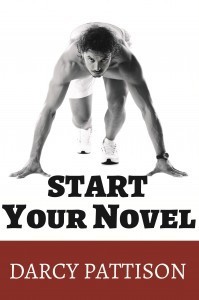 If you found this post helpful, be sure to check out Start Your Novel by Darcy Pattison. Click here to download a free chapter on your Kindle.
If you found this post helpful, be sure to check out Start Your Novel by Darcy Pattison. Click here to download a free chapter on your Kindle.
The post Why Editors Focus on Page One appeared first on Jane Friedman.
June 6, 2013
WRITING ON THE ETHER: An Amazon Roundtable
Table of Contents
A Marvelous Party
Authorial Viewpoints
The Appeal to the Readership
Universal Agreement Isn’t Needed—Or Wanted
A Marvelous Party
I’ve been to a marvelous party
With Noonoo, and Nada, and Nella.
Noel Coward didn’t turn up. He’s in no condition. But Amazon’s CreateSpace and Kindle Direct Publishing (KDP) did something I saw no other publishing outfit(s) doing at BookExpo America: They hosted a private roundtable of leading self-publishing authors and some of us who cover publishing—not for the purpose of promoting what they do, but to get everyone’s input on how things look.
The resulting session was a marvelous, one-hour, serious but thoroughly pleasant kind of party of shared insights and repartee. I couldn’t have liked it more.
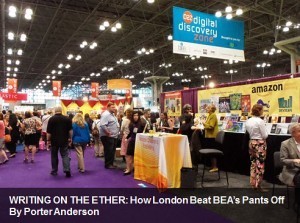 If you’ve missed it so far, you may want to refer to my Ether for Authors column of Monday at Publishing Perspectives.
If you’ve missed it so far, you may want to refer to my Ether for Authors column of Monday at Publishing Perspectives.
How London Beat BEA’s Pants Off looks at the stark difference in how authors were positioned this year at April’s London Book Fair and New York’s BookExpo America, both of them produced by Reed Exhibitions.
To give it to you quickly:
(1) In London, the introduction of an “AuthorLounge”—a physical focus, a spacious pavilion at which Authoright (of New York and London) could program and stage various author-centric events—meant that the writers, fundamental to all publishing, were welcomed as players, as business people in their own right, with a place and purpose in the trade.
(2) By contrast, BEA had no such facility and positioned writers in the old way, as what I’ve termed creatures of publishers—allowed into the Javits largely for the purpose of providing autograph-signing events, a few speeches, some glad-handing in the booths. This decades-old profile of “author” at BEA was seriously and healthily challenged by the cooperative Booth 966 mounted by six “Indie Bestsellers” of a combined eight million copies.
THIS => RT @4fifty1: @ajaxlogos If anything Amazon give indies a better shot at visibility than bricks and mortar bookstores.
— Rebecca Smart (@rebecsmart) June 6, 2013
For my money, you couldn’t have found a more dramatically opposed intent guiding Seattle, when it brought together about a dozen of us for a robust conversation about entrepreneurial authors’ profile in the market today.
No defensiveness: Quite the contrary. Amazon’s soft-spoken, elegant CreateSpace and KDP Vice-President Nader Kabbani, and his Director of Independent Publishing for North America Libby Johnson McKee were there to listen, to take notes, to find out how a trio of key, major-selling authors and their constant media interpreters see things.
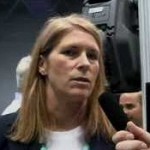
Libby Johnson McKee
McKee had a great observation from 1997, when she began work with Amazon, “right before the company went public.”
My first job was to come to New York and negotiate terms and conditions with publishers. They were very sure that we were going to go out of business quickly, because who could sell books on the Internet? We were all about getting big fast and adding selection. It was this democratization of shopping that attracted me to Amazon. [By 2001] our book business was over a billion dollars…as people were finding the books they loved online.
Incredible video: An impassioned @realjohngreen on why writers still need editors, booksellers and publishers. ow.ly/lLziA
— Colleen Lindsay (@ColleenLindsay) June 6, 2013
When McKee talks quietly of “removing the gatekeepers” and “letting people have their stories be told” and “putting more truths into the world” you begin to hear the human heart of Amazon’s relationship to books and publishing. Her thrill in being made the manager of Amazon Independent Publishing by Kabbani is every bit as clear as the company’s self-published authors’ descriptions of their own excitement.
At Amazon, we always start with the customer and work backward. And in this part of the business, we start with the author and work back from that. Making independent publishing mainstream is what we’re all about.
If you search amazon for a shovel, you can narrow your search by clicking the "digging" option. Or you can buy a non-digging shovel?
— Mark Hoppus (@markhoppus) June 5, 2013
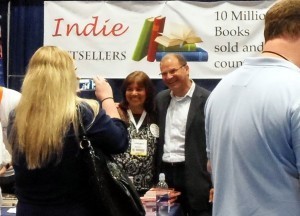
Nader Kabbani, here with 3-million-book-selling self-publishing author Barbara Freethy at the author’s BEA Booth 966
Kabbani is in his ninth year with Amazon. “My first two years were in supply chain, which was very bizarre. My background is in research. I love solving hard problems…problems that have not been solved before.” At the time of the Kindle’s development, Kabbani said:
Traditional publishing was something I’d observed, I love books. I was brought in to turn Amazon from a retailer to a device manufacturer, building the Kindles. Part of my job was to look for a way to fulfill Jeff Bezos’ vision of every book that’s ever been published in any language delivered in sixty seconds. We knew that negotiating with traditional publishers would not be enough.
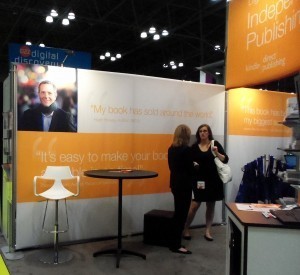
Amazon’s CreateSpace installation at BEA featured author Hugh Howey as a sefl-publishing poster boy
And the Jacob Javits Center had been noisy with the hype and hubris all week of traditional publishers. BEA is a trade show, after all, and promotion is its purpose.
CreateSpace, in fact, had played its part, too, its pavilion’s performance area programmed with presentations about CreateSpace and KDP services and about Goodreads, the recent Amazon acquisition.
But this gathering brought together three of the six entrepreneurial authors of Booth 966—Stephanie Bond, Hugh Howey, and CJ Lyons—with these Amazon executives and publishing-focused bloggers and journalists, all for the purpose of exploring how we all see the state of self-publishing at this point, particularly as it has been enabled in its most serious potentials through Amazon.
When this session’s door closed behind us in one of the downstairs meeting rooms on the northerly end of the Javits complex, the salesmanship, was left outside. Both the authors and a blogger or two had recommendations to make, and they were heard without resistance, in good faith.
Apple trial: Enter Amazon The tenor of the Apple trial changed dramatically when Amazon took the stand. bit.ly/19LoGRH
— Rijanto (@rijantocom) June 6, 2013
And what a remarkable group was around this table. Here were:

Jane Friedman
Jane Friedman, Virginia Quarterly Review’s digital editor, former Writer’s Digest publisher, and my host for the Ether here at JaneFriedman.com. “In a setting like this, I’m taking the perspective of the author-advocate, figuring out how best to advise them, whether they’re fairly new or very well-established.”

Jane Litte
Jane Litte, the attorney who founded the endlessly busy Dear Author site aimed at “Shirtless Men Kissing Beautiful Women” fans, as I call them. Litte told us that last year, her operation moved some $350,000 of merchandise through her site’s Amazon Affiliate program. Not that I’ve ever said romance is anything but successful. But $350,000 of material traceable to one reader-engagement site is impressive even to people whose shirts are on.

David Vandergriff
Vandergriff, another attorney, whom many of us know as Passive Guy of The Passive Voice: “I represent authors, small startup publishers…they say to me, ‘Can you help me do a contract that won’t show up in my blog some day.’” Amy Holman Edelman, whose IndieReader.com is “a consumer-facing site,”

Amy Holman Edelman
She calls it “an umbrella under which you can brand self-published books to make them sexy, to make the consumer say…where are these other great self-published books?” Mercy Pilkington of GoodEReader.com: She credits her interest in ebooks to “my day job in a prison.”
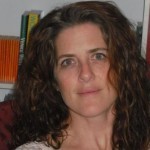
Mercy Pilkington
Pilkington teaches in maximum-security juvenile corrections and finds that electronic devices can be the way to troubled kids’ interest in reading. Pilkington says also has an author-services operation, hoping to walk first-time self-publishers through the process.

Len Edgerly
Len Edgerly of TheKindleChronicles.com: “It’s as if I’m living at the time of Gutenberg and it’s all happening, and I’m wondering, ‘What’s this going to look like 500 years from now?’ “I’m trying to be aware of some of the underlying shifts happening under our feet as this goes on. “If Marshall McLuhan were here, what would he be saying about what’s happening?”

Jason Boog
Jason Boog, the editor of GalleyCat and managing editor of AppNewser. Boog says his cross-country move to Los Angeles has proved the legitimacy of the image of publishing loosened from its one-time New York-centric posture. “We do a lot of programming about self-publishing, helping out writers, helping the community grow.” Back to Table of Contents
Day 3 of the #Apple #ebook trial: #Amazon execs take the stand | #MFN clause in all contracts? by @laurahazardowen wp.me/p2fNZj-Y1m — Marcello VENA (@marcellovena) June 6, 2013
Authorial Viewpoints
Howey, who calls himself an “accidental best-seller,” is not, like Bond and Lyons, a “Kindle Million” seller yet. He’s between 600,000 and 700,000 into his sales count with the third leg in the Wool ”Silo Saga” trilogy, Dust, set to release in August. He told the group:
Amazon has made it difficult for me to remain a small-time, nobody author. My best-seller Wool took off because of readers being able to discover it all over the world on KDP for 99 cents…I’ve just been trying to keep up with (it) ever since.
Twitter was down – read two books; spoke to children; mowed lawn. Phew. it's back up, slumped in chair.
— jonny geller (@jonnygeller) June 3, 2013
The concept of self-publishing, he says, used to be that you’d have to pay for a run of 10,000 copies for your basement, mortgaging the house.
“But what I found out about CreateSpace…when they sent me the first proof, my total outlay for everything was $4. I thought, ‘I should have to pay more for this. I could sell these out of the trunk of my car and make a profit.’ They were like, ‘That’s what you’re supposed to do.’”
What’s more, Howey says, “If I had to, I could live off my audio books right now,” so lucrative has that part of his output become. “Never thought I’d be a public speaker, either. They’ve messed that up for me, too.”
My first non-fiction book, Dead Drop, an investigation of the Penkovsky spy operation in the 60s, is out… today! http://t.co/XDIFl5l6fc
— Jeremy Duns (@jeremyduns) June 6, 2013
Howey is never shy about describing his gratitude to Amazon or his concept of his own luck.
I’m not business-savvy like CJ (Lyons) and Stephanie (Bond) are. They came from traditional, they know what they want to get, and they fight for it.I’m kind of in everyone’s wake, being sucked along by the forces of history and The force of all this technology and these people…I feel so fortunate that I happen to have been working in a bookstore when I did, writing when I did…Everything else has been the force of all this technology and these people who care about getting books into the hands of readers.
“He could have signed a thousand books” at the booth, Bond said about Howey.
Amazon’s E-Book Deals Were Just as Tough as Apple’s | @johnpaczkowski in AllThingsD pwne.ws/1b86Xlf — Publishers Weekly (@PublishersWkly) June 6, 2013
The Appeal to the Readership
Two signal considerations, in my opinion, began surfacing in the discussion on the 31st. First, a few minutes were devoted at the roundtable to what differences, if any, may be discerned in the self-published author’s appeal to a reader over that of a traditional author.
Amazon has taken a notable step in the US retail market by planning shift to same-day delivery in some urban centres eiu.com/USFMCG — The EIU (@TheEIU) June 6, 2013
In my own interpretation, the defining element of self-publishing for a reader is probably one or more forms of access to authors. As a kid, I used to write letters to authors I liked, sending those things to their publishing houses, never knowing if they even made it to their authors.
Today, of course, readers aren’t only in the picture as interactive players in the marketplace, but they’re also right up in their favorite authors’ faces, commenting, critiquing, pushing for more content, turning up at signings and meetups in real life, and in tweet chats and on author Web sites online.
I loved this book, it grabbed me from the start & I read it at breakneck pace. THE DISCIPLE http://t.co/DibR3quMvp #nonfiction #spirit #BYNR
— Simon Hay (@SimonHayHealer) June 6, 2013
“I invite my readers at the end of my self-published books,” says Bond, author of the newly released (and optioned for television) Two Guys Detective Agency, “‘If you see a problem with the book, email me directly. Editorial feedback.” Howey and Lyons, whose Broken is scheduled for a fall release from Sourcebooks, do the same, directing readers at the ends of their books to be in touch, follow their sites, interact.
Amazon Hosts BEA Roundtable to Get KDP Feedback http://t.co/FScIArp2Nl
— Len Edgerly (@lenedgerly) June 5, 2013
As much as some authors have wanted out of the constraints of Old Publishing’s strictures, it seems that many readers have wanted into their authors’ process and production.
Amazon Opens Shop in India http://t.co/yvXEvmILWz
— Stacie Berger (@stacieberger) June 5, 2013
Second, the Amazon executives with us conceded that their focus to date has been primarily on the tools and processes of self-publishing—creating ebooks and print books, selling them through Amazon’s channels.
Marketing for these authors has not yet been the priority but may begin taking more focus now, as they hear from authors that this is what’s needed. The best potential moves in this regard may involve Goodreads and how Amazon’s developers and Kabbani and McKee’s teams integrate Otis Chandler’s 18-million-member recommendation site into the master framework.
This could be interesting if it works well. Would you get your groceries delivered from Amazon? http://t.co/g8oavQqUf2 via @ChrisKubica
— Miral Sattar (@miralsattar) June 5, 2013
How readily can the virtual bookshelves and reviews of those millions of readers be surfaced onto sales pages at Amazon? With the recommenders’ permission, can new levels of Kindle interaction with Seattle’s marketplace come back to them in exchange? And can all this be done and still keep Goodreads device-agnostic, as Chandler says he wants it to be, for those who love books but not Bezos?
Cycling on the coast road. A sunshine sea. Like liquid diamonds. I’m tanned and Ray-Banned. Free as a cloud.
— Michael Crossan (@MichaelCrossann) June 6, 2013
Universal Agreement Isn’t Needed—Or Wanted
It would be Quixotic to think that everybody in the room could agree on every point. It’s not even desirable. A diversity of viewpoints is part of what makes such a meeting rich. For example, when Edelman of IndieReader.com said, “We’re really just trying to get the consumer to look at self-published books like another genre,” I felt I was hearing a tail wagging a dog. Such an emphasis on self-published work for its own sake is misguided.
#WhyReadRomance because the last time I was in a coup in the desert&escaped w/ the prince it didn't turn out so hot! http://t.co/gE7e0KApnM
— M.J. Schiller (@mjschiller) June 6, 2013
Clearly, I may be wrong about this, but asking or expecting the reader to say, “Well, I like mystery, and romance, and science-fiction/fantasy and self-published,” is placing platform above content. The emphasis of IndieReader.com at that point sounds artificial. I’m sure that some readers do like focusing on self-published work. But I’ll bet that the vast majority will find books’ pertinence in their lives through the usual criteria of story type and quality, not through means of production.
Amazon In France: French Culture Minister Calls Website 'Destructive For Booksellers' http://t.co/Qb4vfqSmhN via @HuffPostBooks
— LeFrenchBook (@LeFrenchBook) June 5, 2013
Lyons describes this element of the reader’s attraction very frankly. “It’s entitlement. It’s, ‘Hey, you’re putting out books to keep us happy.”
At times, she concedes, “It’s backfired on me.” The readers can put a lot of pressure on these writers to create more material quickly when they’re ready to see the next installment in a series. They’re vocal about it, one group of her fans mounting a “We Love Lucy” campaign to push her for more books, more quickly, in a series.
@veschwab If you were on Amazon, I would give you 5 stars.#justsaying — Scott Tracey (@scott_tracey) June 6, 2013
“But they don’t see this as a question of self-published vs. traditional,” she said in answer to Edelman’s assertion that this was the touchstone of the self-publishing attraction.
“They see it more as a function of timing and when can they grab that book, not as a question of whether it’s a New York City book or not. In fact, some of them get upset when I do a New York City book,” readers of her self-published books feeling that the traditional books take time away from the series they like.
Thanks everyone who replied to me with worse songs to have stuck in their head then "I Want to Know What Love Is." THANKS.
— Ginger Clark (@Ginger_Clark) June 5, 2013
“If I was a writer who did one book a year…” Lyons started.
“You’d get bricks through your windows,” Howey finished it for her.
I’m sure any self-published author would appreciate the help Edelman can provide in steering readers his or her way, and rightly so. And Howey says, there are readers who’ll tell him “they only read indie now.”
Why can't Amazon simply send indie authors/musicians/filmmakers an email when somebody purchases their product? It is standard business.
— Historical Fiction (@MythSeries) June 6, 2013
Some technical points touched on during the meeting included:
Whether ebooks that also have print editions available sell better than those with only Kindle offerings. (Answer: the more formats the better, serve all customers.)
Whether Amazon can consider supporting non-mobi digital formats. (Graciously stated answer: Not at the moment, but remember that Kindle books can be read and sync-ed across all devices. Here, there was some pushback from the authors, Lyons saying that consumers would prefer device-agnostic editions. Howey agreed with Lyons that in some cases he gifts books from Amazon to readers who have bought his books in, say, EPUB format and want to have them on Kindle.)
Whether Amazon could make it easy for Barnes and Noble customers to transition their libraries from Nook (EPUB) to Kindle. (Litte pointed out that while the Kindle previewer will convert from EPUB to mobi, that capability isn’t extended to the customer. As Vandergriff pointed out, it could be a real competitive advantage to say to Nook users, “Buy a Kindle and we’ll help you convert your Nook books to it.” Litte would like to see the existing “personal document” service make the transition when a user emails an EPUB file over.)
And then there’s that author-presented Booth 966. Five women authors and Howey.
@ami_with_an_i yeah. having to put on makeup trumps having to put on pants in the annoying category. i say don't do it.
— Kat Meyer (@KatMeyer) June 4, 2013
Was it Bond or Lyons who turned to Howey?
“You were supposed to do the heavy lifting of the boxes at the booth, Hugh.”
How important do you think it is to market self-publishing as self-publishing? Is it a key, as Edelman suggests, to make self-publishing “special” to readers? Or are they, as Lyons finds them, simply focused on getting the best reads from their favorite writers when they want them?
Waiting.
— Don Linn (@DonLinn) June 5, 2013
Main image: iStockphoto – Seawaters
The post WRITING ON THE ETHER: An Amazon Roundtable appeared first on Jane Friedman.
June 5, 2013
Write What Haunts You

Photo by Joshua Sy
What haunts you? What images or moments have never left you? What do you keep revisiting again and again and again?
In the latest Glimmer Train bulletin, Melissa R. Sipin discusses how her stories are obsessions over such moments. She writes:
I am that kind of writer. You can call us tortured ones, silly ones, obsessive-compulsive ones that labor over each word and breath and inflection and erase erase erase until that one sentence flies on its own, bleeds into the next one.
No remnant of the first draft has remained, except for the one thing that started it all: my brother’s black question mark tattoo, impressed on his right forearm and four inches in height.
Read the full essay at Glimmer Train. Or, check out these other pieces on the writing life:
From Myth to Meh by Edwin Rozic
On Multiple Drafts by DM Gordon
Polyphony in Fiction: What Is It, and What Is It Good For? by Joe Vastano
The post Write What Haunts You appeared first on Jane Friedman.
June 4, 2013
Best Business Advice for Writers: May 2013
Best Business Advice for Writers is a monthly link round-up where I share the best online articles focused on the business of writing and publishing. Share any best reads you’ve found lately in the comments.
6 ”About Us” Pages That Are Probably Better Than Yours by Sonja Jacob (@sonja)
Authors—and, frankly, everyone—often struggle with what to say about themselves on the “about” page of their website. While this post focuses on businesses, authors can find some valuable takeaways and suggestions, such as using the power of storytelling to create more gripping copy. Click here to read the entire post at Hubspot.
8 Data-Based Tips for Optimizing Your Content on Tumblr and Instagram by Dan Zarrella (@danzarrella)
Get excellent nuts-and-bolts advice on using Tumblr and Instagram—a must if you’re using either of those channels as part of your online platform.
How to (Really) Make $1,000,000 Selling E-Books—Real-World Case Studies by Ryan Buckley (@rbucks)
The headline makes an outsized promise, which is an eye-roller at minimum. However, the information presented is worthwhile, especially for newer authors. Here’s a snippet on the section about researching your idea or genre:
Your first order of the day should be to spend a few hours around the Amazon Kindle marketplace. Browse through the top sellers, be generous with your clicks and read up as much as you can – user reviews, book descriptions, Amazon’s editorial reviews (if any). You want to get an intuitive feel for the market, what sells, what doesn’t. How many non-fiction books end up in the top 10? What genre do they belong to? What is the average price of a Kindle bestseller? What do their covers look like? How many reviews do they have? What is the average rating? What is the correlation between rating and current ranking?
Even if you already know the basics, this post offers numerous links to other experts and articles that you may not have seen already. Click here to read the entire post at Tim Ferriss’s site.
For bonus points: Read the following brief post (which is quite complimentary), A Few Thoughts on Content Creation, Monetization and Strategy by Tim Ferriss.
The Ultimate Guide to Goodreads for Authors by Mayor A. Lan (@TheSavvyIndie)
If you’re new to Goodreads as an author, this post is a great place to learn the basics. Click here to read the entire post at The Creative Penn. Once you’re more advanced, check out this Goodreads 201 presentation by one of the folks at Goodreads, to help authors and publishers use the site more effectively.
The Real Costs of Self-Publishing a Book by Miral Sattar (@MiralSattar)
How much will it (or can it) cost to self-publish your book? Sattar offers a solid overview—though the comments section is very active with a range of viewpoints. Click here to read the full post at PBS MediaShift.
5 Reasons I Switched to Scrivener for All My Writing by Michael Hyatt (@MichaelHyatt)
This is the best post I’ve seen explaining the benefits of the Scrivener software, which can export ebook files. Click here to read the full post at Michael Hyatt’s site.
All the Publising Information You Ever Wanted by Rachelle Gardner (@rachellegardner)
Agent Rachelle Gardner offers a helpful round-up of links to her timeless posts on how to get published. Click here to read the post at Rachelle Gardner’s site.
Improving Book Publicity in the 21st Century by Cory Doctorow (@doctorow)
This is more of an insider’s rant about how publishers don’t have very effective marketing and publicity departments (at least by professional marketing standards). I share it here because it helps authors understand what good marketing looks like, especially if they’ll be doing it themselves. Click here to read the full post at Locus.
Why a Free Chapter Is a Lousy Thing to Give Away If You Want to Sell a Book by Andy Traub (@andytraub)
Traub begins with the following:
Giving one chapter away has lost its value because of, you guessed it, Amazon.com. I can download a “free sample” of every book in the Kindle library and Amazon doesn’t require me to join your email list. I also get to see the reviews of other people who have already purchased the book to help me decide if I want to download that free sample.
He then follows up with OTHER valuable things to give away. Click here to read the full post at Take Permission.
Your Book Is a Startup: Tim Ferriss, The 4-Hour Chef, and the BitTorrent Publishing Model by Matt Mason (@MattMason)
I know, a lot of Tim Ferriss–related content this month. But it’s good stuff. For Ferriss’s latest book, he used BitTorrent as a marketing and promotion tool. If you don’t know what BitTorrent is, it’s peer-to-peer file sharing, which enables what many authors fear most of all—piracy. However, Ferris approached BitTorrent as an opportunity to reach new fans and reward existing ones. His strategy, as described by Mason:
To promote The 4-Hour Chef, Ferriss released the first chapter of his book, in addition to 680MB of behind-the-scenes content on BitTorrent. This content was downloaded by over 2 million people, who in turn:
Clicked on to the book’s trailer YouTube: 293,936 people
Clicked on to the author’s website: 327,555 people
Clicked on to the book’s Amazon page: 880,009 people
Read more about Ferriss’s strategy, and its results, at the BitTorrent blog.
The post Best Business Advice for Writers: May 2013 appeared first on Jane Friedman.
May 31, 2013
5 Ways to Find the Right Freelance Book Editor
Today’s guest post is excerpted from the book The Editor’s Eye by Stacy Ennis (@stacyennis).
If you’re ready to hire and work with an editor, you may not know the first thing about how to start looking for one or how to evaluate candidates once you’ve found them.
1. Look for someone with experience.
First things first: If you’re going to hand over your manuscript to an editor, give it to a skilled, qualified editor. Just because someone teaches English or has a degree in English (or even writing), that alone doesn’t qualify that person as a professional editor. A qualified professional editor not only has appropriate academic credentials, but also, most importantly, has a proven track record of book-editing experience.
The experience part is particularly critical. I know many professional editors who are wonderful in their craft and have outstanding editing skills, but actually know very little about the book-editing process. They may have edited articles or shorter works, but book editing is a different game and requires a different level of expertise. An editor looking to gain book-editing experience may offer to do your book, and it may be tempting to take this low-cost option. But, unless he’s naturally talented or comes with excellent references, without the real experience of working on book-length manuscripts, he isn’t really the right editor for you. Don’t let your manuscript be practice.
2. Find a qualified editor that brings good energy to the process.
“An author and editor are on the same team,” says Pooja Lohana, a freelance writer and editor in Melbourne, Australia, who has ghostwritten three nonfiction books and edits several magazines and websites. “Editors who possess human relations skill and the art of negotiating and convincing with solid backup reasoning are authors’ favorites.”
Just like a good editor can substantially impact your manuscript in positive ways, a not-so-good editor can waste time and money—and might be a roadblock in your success as an author.
“Some people suck. In any profession that’s true, and editing is no exception,” says Jessica Stillman, a freelance writer based in London, who has blogged for CBS MoneyWatch, GigaOm, and Brazen Careerist, among others.
“I’ve had nice editors who give lots of encouragement and engage with me on a friendly human level, and I’ve had some that can’t be bothered to type a two-letter salutation in an e-mail and are generally brusque (and I’m sure overworked). … I no longer work with the editors who stress me out with their gruffness and lack of human touch, and I’m happier for it. You’re not always in a position to choose, but if you can, avoid people who make your working life worse.”
3. Look in the right places.
Entering keywords into Google isn’t usually the best approach to finding the right editor for your book. Just like anything else, it’s always best to get a referral. Ask friends and colleagues for recommendations.
If you’re finding this to be a dead end, check the acknowledgments in well-written books, as editors are usually listed there. But be realistic: The editors of best-selling books or those published by the New York publishers might be out of your price range. It’s best to stick with regionally published books, if possible, as well as books published by partner publishers or small presses, since they tend to work heavily with freelance editors. Also, don’t be afraid to e-mail authors and ask if they were happy with their editors. Additionally, you can call local or regional publishing houses for a referral.
Finally, if you’ve exhausted these two options (really exhausted them, not just spent a day or two asking around), start looking online. A good starting place is the Editorial Freelancers Association (EFA). On the organization’s site, you can access their many resources, including guidelines for hiring and working with editors, a rate chart, and a job list where you can post your project. The organization is well-respected in the editorial field and has paying members, so you can feel more confident finding an editor on their site than, say, Craigslist.
4. Interview the editor’s past clients.
Regardless of which direction you pursue to find your editor, whether you get a referral or connect with a freelance editor online, be sure to talk to someone the editor has worked with in the past or, at the very least, look at a work sample (see next section). Be wary of any editors who aren’t willing to provide a reference, even if it’s just a written recommendation from a client.
As you talk to a previous client of a prospective editor, ask these key questions:
What type of book did the editor work on?
Were you happy with the quality of work?
Was there anything you were unhappy with?
Did the editor meet the agreed-upon deadline?
Did you end up paying what the editor quoted at the outset of the project? If not, did the editor communicate with you before charging you more?
Did the editor have a positive attitude throughout the project?
Was the editor willing and able to explain his changes? If questioned, did the editor have the attitude of a teacher and a willingness to go over details?
Does the editor live locally? If not, did you find working electronically relatively seamless?
Would you hire this editor again?
Note that it’s usually best to hire an editor who has worked in your genre or a genre similar to your own.
5. Interview the editor and work on a sample chapter together.
Aaron Patterson, CEO of StoneHouse Ink and best-selling author of four titles, adds, “[For] my first book, I hired a proofreader thinking that she was the creative and everything in one … it was a mess, and I still have the reviews on Amazon to prove it.” Learn from his mistake, and ask a lot of questions. Here’s a starting list.
What types of books have you edited (fiction, nonfiction, etc.)?
What is your writing and editing background?
What are your major editing accomplishments?
What is unique about your editing process?
What types of books do you enjoy working with?
Are you willing to provide an editing sample?
Prior to signing a contract, can you edit one chapter to make sure we’ll work well together?
What makes you a good fit for my manuscript?
“Don’t sign a contract with an editor until you have worked with that person on a sample chapter together,” advises Maryanna Young of Aloha Publishing. “It should either really work, or go ahead and find another editor.”
I couldn’t agree more, but don’t expect to get an editing sample for free, especially from busy or in-demand editors. A legitimate editor should be willing to do an editing sample (preferably the first chapter) for a normal or slightly discounted fee, prior to signing a contract. Then, when you discuss the overall project budget, if money isn’t a concern, don’t feel the need to broadcast this fact. If money is a concern, be sure to let your potential editor know.
If you have tips or experiences to share about finding the right freelance editor, please share in the comments!
Note from Jane: If you found this post helpful, I highly recommend you look at The Editor’s Eye, which takes you through the ins and outs of the book-editing process and teaches you how to work alongside professional editors. Click here to download a sample chapter at Amazon.
This post was excerpted from the book The Editor’s Eye by Stacy Ennis (@stacyennis). Copyright © 2013 by Stacy Ennis. Reprinted with permission of the publisher, Night Owls Press.
The post 5 Ways to Find the Right Freelance Book Editor appeared first on Jane Friedman.
May 30, 2013
WRITING ON THE ETHER: Casting Stones at BEA
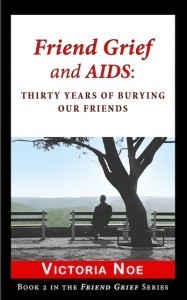 Friend Grief and AIDS: Thirty Years of Burying Our Friends by Victoria Noe
Friend Grief and AIDS: Thirty Years of Burying Our Friends by Victoria Noe
It’s been likened to a plague, but AIDS was never just a health crisis.
The second of a series on grieving the death of a friend, Friend Grief and AIDS: Thirty Years of Burying Our Friends, revisits a time when people with AIDS were also targets of bigotry and discrimination. In stories about Ryan White, ACT UP, the Names Project, red ribbons and more, you’ll learn why friends made all the difference: not just caregiving or memorializing, but changing the way society confronts the medical establishment and government to demand action.
Click here to visit Amazon and download a sample.
Table of Contents
Mission Obvious: Casting Stones at BEA
Equal Opportunity Ego
Too Many Conferences at Once
Highlights of the Day
Mission Obvious: Casting Stones at BEA
I don’t draw a sharp distinction between the kinds of things people inside business think about and the things people outside business think about…I think we’re all coping with the same kinds of issues. My writing deals with challenges that I think are fairly universal…Certainly, the notion, which is explored in this book—that sometimes the most productive learning and achieving environments are those in which significant obstacles are present—is something that’s very, very relevant.
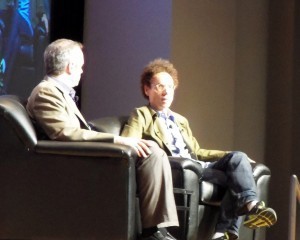
Brad Stone of Bloomberg Businessweek, left, and Malcolm Gladwell at IDPF’s Digital Book 2013 | Photo: Porter Anderson
Malcolm Gladwell, in those trademark sneakers, was speaking to Bloomberg Businessweek’s Brad Stone onstage at IDPF’s Digital Book 2013.
#DigitalBook13, as it’s hashed on Twiiter, is one of the conferences positioned around BookExpo America.
BEA opens its trade-show floor today (Thursday) at the Jacob Javits Center in New York City.
And at BEA, where there’s an author, there’s a new book.
Gladwell is no exception.
His releases at the top of October, from Hachette.
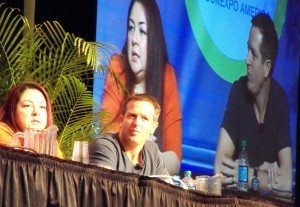
Best-selling entrepreneurial authors Sylvia Day and Hugh Howey take questions at IDPF’s Digital Book 2013 | Photo: Porter Anderson
At IDPF’s (International Digital Publishing Forum) well-attended event on Wednesday, the title of that new book from Gladwell—David and Goliath: Underdogs, Misfits, and the Art of Battling Giants—couldn’t have fanned the fears of both upstarts and big players in the room if it had been trailing a small drone circling overhead in the Javits’ Special Events Hall.
We’d just heard from Hugh Howey and Sylvia Day, two of the sudden class of entrepreneurial authors who seem to know their way around slingshots and pebbles when it comes to Big Publishing.
Bestselling author @: “As far as digital is concerned, [publishers] cannot compete w/what I’m doing on my own.” #DigitalBook13 #bea13
[image error]about 19 hours ago via TweetDeckReplyRetweetFavorite
Jane Friedman
The IDPF mission, as described by its able executive director Bill McCoy, is ”to advance the global adoption of digital publishing.”
 But, as covered in last week’s Writing on the Ether, Howey and five other self-described Indie Bestsellers taking Booth 966 together at BEA—with more than 8 million copies sold between them to prove their point.
But, as covered in last week’s Writing on the Ether, Howey and five other self-described Indie Bestsellers taking Booth 966 together at BEA—with more than 8 million copies sold between them to prove their point.
There’s a joint signing today (Thursday) at 1 p.m. ET with the whole group: Howey, Bella Andre,Stephanie Bond, Tina Folsom,Barbara Freethy, and CJ Lyons.
Surely, the IDPF mission statement seems something no one still should have to voice.
#digitalbook13 Best single-month ebook sales for @ & @ top $200K. Authors: plan smart and write well
[image error]about 19 hours ago via HootSuiteReplyRetweetFavorite
Stacie Berger
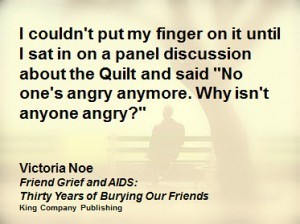 Now deep into its digital disruption, US publishing hunkers again this year in its stressed-concrete springtime shrine at 11th Avenue and W. 34th Street.
Now deep into its digital disruption, US publishing hunkers again this year in its stressed-concrete springtime shrine at 11th Avenue and W. 34th Street.
It is baking in near 90-degree temperatures and basking in its oldest-school sales and distribution patterns.
Once more, bookstore and distribution buyers are supposed to replicate the decades-old rituals, take meetings with publishers’ reps about the new catalogs, sitting at little café tables among gleaming book-cover posters to place orders to fill bookstore shelves…that are waiting…where?
Shoppers long ago learned that Prime means a virtual Amazonian rainforest of titles online.
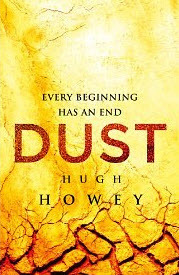 And nowhere was the new order more evident than in sessions at McCoy’s and Wendy Erman Wels’ conference like the eye-opening interview Digital Book World’s Jeremy Greenfield conducted with these two authors able to sell tens and hundreds of thousands of dollars of books monthly—without a publisher.
And nowhere was the new order more evident than in sessions at McCoy’s and Wendy Erman Wels’ conference like the eye-opening interview Digital Book World’s Jeremy Greenfield conducted with these two authors able to sell tens and hundreds of thousands of dollars of books monthly—without a publisher.
Here’s Hugh Howey, whose final installment in his runaway dire-dystopian Wool trilogy, Dust, comes out August 17:
Waiting for an agent to come to me was the best thing … rather than begging and taking whichever one said “yes.”
@rgay @janefriedman so I’ll just sit here and wait, then?
— Vito Grippi (@vitogrippi) May 29, 2013
@rgay Indeed. … Hugh contends this will be the way things work in the future for more & more authors. — Jane Friedman (@JaneFriedman) May 29, 2013
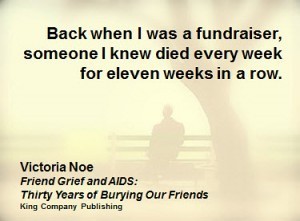 While his book doesn’t deal per se with publishing’s ongoing struggles with transition, Gladwell put his finger on one of the most intriguing elements of how publishing continues to hold out.
While his book doesn’t deal per se with publishing’s ongoing struggles with transition, Gladwell put his finger on one of the most intriguing elements of how publishing continues to hold out.
Using the concept of “affective forecasting” from psychology and economics, Gladwell talked Wednesday of common (but usually incorrect) predictions of happiness.
For example, there’s winning the lottery and other such popularly vaunted accomplishments.
People who go to Harvard always overestimate the importance of going to Harvard.
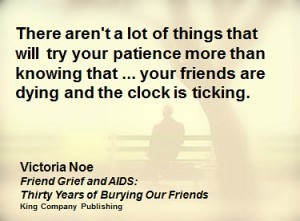 Stone picked up on this, phrasing what the industry! the industry! is facing:
Stone picked up on this, phrasing what the industry! the industry! is facing:
A beleaguered paranoia that they (books and their ecosystem) might go away. This is a world where ebooks are 30 percent, and might someday be 70 percent.
Gladwell took this onboard, but said the irony is that publishing doesn’t face an industry crisis, but “a crisis over particular skills”—namely editing and marketing, “which are hard to master and in demand.”
In 10 years, best-selling authors will [still] need marketers and editors…Good marketers and editors will find a way to be relevant…[And in reference to Amazon], there’s always a pendulum that swings between disintermediation and massive intermediation.
Someone always says “Why do we need the middle man?” The pendulum always swings in that direction.
Then after a while, the buyer says, “It’s so complicated, I’m overwhelmed. Can’t I just have my middleman back?”
And each time the pendulum swings, people assume it will never swing back.
Publisher’s worst nightmare: “*Music* didn’t go away; music label *margins* went away”, per Malcolm Gladwell at #digitalbook13
[image error]about 18 hours ago via Twitter for AndroidReplyRetweetFavorite
Joe Wikert
Equal Opportunity Ego
Using the example from his book of Manhattan parents’ obsession with getting kids into private schools (the value of which “exists only in the minds of the parents”), Gladwell stepped us right past mere affective prediction to actual, present-day hubris.
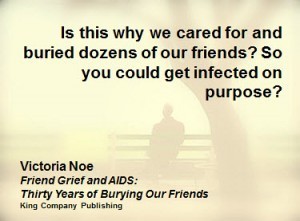 Best of all, he got us there not just in regards to publishing’s cold-dead-hands grip on an outmoded business model, but on the part of our brightest-young-things’ so-social self-congratulatory skills:
Best of all, he got us there not just in regards to publishing’s cold-dead-hands grip on an outmoded business model, but on the part of our brightest-young-things’ so-social self-congratulatory skills:
People involved in the digital world always like to pretend that what they have invented is more than a process. Right?…They want to pretend it’s a way of life. They use the word “philosophy.”
Warming to his moment, Gladwell went straight for the jugular of the avatar-ed digital leadership, getting a huge laugh and round of applause from IDPF’s hundreds of attendees. With elegantly mounting exasperation, he recalled an award ceremony speech he heard given by Jack Dorsey, one of Twitter’s fab four and CEO of the mobile-payments company Square:
[Dorsey's] speech was all about how…he wanted to change the world…[With] Square?…it’s simply another credit card. The guy who founded Diner’s Club or MasterCard 30 years ago did not stand up and give a speech like they were Mahatma Gandhi.
Malcolm Gladwell telling Jack Dorsey to get off his Mahatma Gandhi shaped horse.”It’s just a credit card on your cell phone!”
[image error]about 18 hours ago via Twitter for iPhoneReplyRetweetFavorite
Craig Mod
@ “Gandhian innovation” now has shape it’s @
[image error]about 16 hours ago via webReplyRetweetFavorite
cliveboulton
@craigmod @jack it’s ok, gandhi believed in simplicity and happiness and more power to the people! #gooddesignfundamentals
— Sandhya Hegde (@sandhya) May 29, 2013
@craigmod @rsa Clearly Mr. Gladwell has never tried to set up a traditional merchant account. — David Ryan (@CaptDavidRyan) May 29, 2013
Outraged and insulted by Gladwell’s comments today at #digitalbook13. My horse is shaped like Hemingway, not Gandhi. https://t.co/mSxsfTKSDC
[image error]about 16 hours ago via Twitter for iPhoneReplyRetweetFavorite
Jack Dorsey
Where Gladwell might have struck some real, if gentle, digital-age terror into publishers’ hearts was in his comments about post-digital music. And he did it by drawing a deep line between the needs of the industry and the needs of the reader. He said the labels lost, the artists lost, as digitally disrupted music-industry structures and strictures fell:
But all I see is people listening to music. So in the strict sense, music won…[And] I don’t think you can look at that and say it’s evidence of the system failing. All these questions are ultimately about one person: the consumer, right?
The reason we write books is not for our own personal satisfaction. It’s because we want to reach people with them. Music has massively succeeded at that task…
If I saw as many people reading as currently are listening to music, I’d be the happiest man in the world…The appetite for good books is not diminished. It’s expanding.
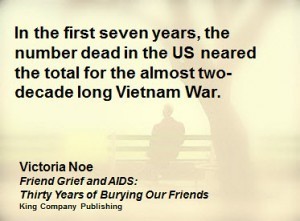 Gladwell also handily yanked down the publishers’ favorite whipping post.
Gladwell also handily yanked down the publishers’ favorite whipping post.
Amazon is just another way in which people get books. It’s neutral.
Stone trotted out the usual combo of “innovative but ruthless” arguments for and against Amazon’s profound presence on the publishing stage.
Gladwell, for his part, said that he’s used Amazon to reach the holdings of used book stores, a special interest of his.
The presence of Amazon has expanded my options…[and] made me realize just how much I cherish the experience of being in a bookstore.
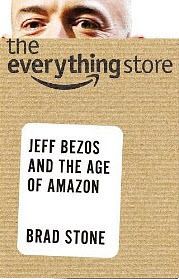 Gladwell also noted, as Stone prodded him about Amazon, that he, Stone, has a book coming out on the great retail phenomenon, The Everything Store: Jeff Bezos and the Age of Amazon, due on October 15 from Little, Brown. (Did I mention that everybody at BEA has a book coming out?)
Gladwell also noted, as Stone prodded him about Amazon, that he, Stone, has a book coming out on the great retail phenomenon, The Everything Store: Jeff Bezos and the Age of Amazon, due on October 15 from Little, Brown. (Did I mention that everybody at BEA has a book coming out?)
When there is a great, engaging book, people will read it. Everything else is irrelevant.
And, if anything, he said, “the last thing we want is everything we want.”
Where are all the best experiences I’ve had in any retail context? …some place intimate, manageable, and that gives me the sense that someone with taste has given some consideration to what they want to say…If there’s a flaw in the Amazon model, it’s a belief that by offering everything in the world, they have vanquished all their competitors.
Is there an app to tell me how fast my cab driver is going down the FDR? ASKING FOR A FRIEND CURRENTLY HURTLING DOWNTOWN AT MACH TWO.
[image error]about 13 hours ago via SeesmicReplyRetweetFavorite
Ginger Clark
Too Many Conferences at Once
In a peculiar proof of that point—the concept of a plethora as marketing savvy—the organizers of BEA conferences had scheduled a ridiculous collision of material on Wednesday.
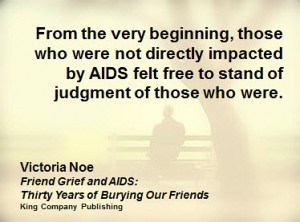 IDFP’s Digital Book 2013 was hardly the only thing in sway. (You can review all the tweets from that one at my Epilogger, if you’d like—we went from around 200 to 2,016 tweets in a single day, with more than 600 unique tweeters contributing)
IDFP’s Digital Book 2013 was hardly the only thing in sway. (You can review all the tweets from that one at my Epilogger, if you’d like—we went from around 200 to 2,016 tweets in a single day, with more than 600 unique tweeters contributing)
Mike Shatzkin and Michael Cader had mounted their annual Publishers Launch BEA conference on the same day. A combo ticket was available, but anyone who has tried floating back and forth between conferences can tell you that you end up getting little from either.
What’s more, BEA’s own administration felt compelled—I cannot figure out why—to stage a “keynote panel” with several important publishing and distribution leaders in direct opposition to both the IDPF and Publishers Launch events. In fact, fewer of the IDPF crowd got to see the Howey-Day panel than I’d have liked because some felt they had to be at the BEA “keynote” event.
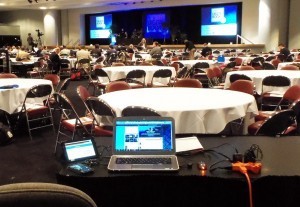
The Twitter Command Center for live-tweet coverage of IDPF’s Digital Book 2013 | Photo: Porter Anderson
Why don’t you good folks sit down with each other and spread things out? This kind of calendar collusion the Department of Justice will forgive; you just send them to me if they yell at you.
Give us Publishers Launch on one day. Give us IDPF’s Digital Book 2013 on another day. Give us Publishing Perspectives’ Reaching Readers event on another day. Give us—if you must—BEA’s own “conference” events, for God’s sake, either in an early morning or evening position, without treading on the major confabs that are trying to create and deliver coherent, sensible programs, and to swell BEA’s program by association.
These conferences, stacked as they are like the cities of Troy, simply confound your would-be conferees and exhaust everyone before the BEA floor even opens.
@glecharles @ljndawson I suspect the three of us could live tweet a conference that wasn’t even happening
— DonLinn (@DonLinn) May 29, 2013
Highlights of the Day
And it’s to a far better idea of “expansion” and range that McCoy and Wels and their program appealed all day, albeit at times with a maddening return to themes we’ve heard for so many years. 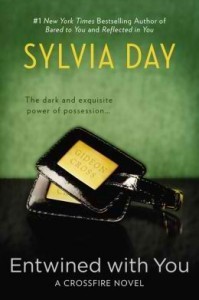 The program started with a set of short talks, four “visionary perspectives,” the most intriguing of which was Craig Mod’s look at what he terms “disruptive publishing” in formats such as LINE and Wattpad. For background, here is LINE enters ebook biz with manga app from ZDNet’s Ryan Huang. And the teeming Wattpad platform—with 15 million members and as yet not monetized, its founder Allen Lau told us–is more familiar to American digital publishing community. While I haven’t always been a fan of some of Mod’s approaches to what he last fall was terming “subcompact publishing,” this associated inquiry into these mass-writing-and-reading exchanges, the great floating storytelling platforms like LINE and Wattpad, are genuinely something we need to consider more. Mod’s appeal to the IDPF was simply that publishing not turn a blind eye to these outwardly chaotic constructs. While we may not yet know what they mean, entirely (beyond an Internet-fueled love of textual creativity), they surely merit attention and respect for their size and prodigious output. During the day, some other contributing thinkers we heard from included: Hugh McGuire, eloquent as always on the “books in browsers” concept of a book as an API, aggregating all references and responses to it as a URL online; https://twitter.com/micycle/status/33... Richard Nash, this time talking of the novel “as alorithm,” reminding us, “There was no ‘liking’ before 2005…but there have been a million ‘likes’ [on Facebook] since I started speaking.” https://twitter.com/elib_se/status/33... Laura Hazard Owen of GigaOM interviewing HarperCollins’ Chantal Restivo-Alessi on the company’s efforts in innovation. https://twitter.com/drewledrew/status... Phil Sexton of F+W Media’s Writers Digest and Digital Book World 5,000-headcount study of “What Authors Want” with some new data on hybrids like Howey and Day.
The program started with a set of short talks, four “visionary perspectives,” the most intriguing of which was Craig Mod’s look at what he terms “disruptive publishing” in formats such as LINE and Wattpad. For background, here is LINE enters ebook biz with manga app from ZDNet’s Ryan Huang. And the teeming Wattpad platform—with 15 million members and as yet not monetized, its founder Allen Lau told us–is more familiar to American digital publishing community. While I haven’t always been a fan of some of Mod’s approaches to what he last fall was terming “subcompact publishing,” this associated inquiry into these mass-writing-and-reading exchanges, the great floating storytelling platforms like LINE and Wattpad, are genuinely something we need to consider more. Mod’s appeal to the IDPF was simply that publishing not turn a blind eye to these outwardly chaotic constructs. While we may not yet know what they mean, entirely (beyond an Internet-fueled love of textual creativity), they surely merit attention and respect for their size and prodigious output. During the day, some other contributing thinkers we heard from included: Hugh McGuire, eloquent as always on the “books in browsers” concept of a book as an API, aggregating all references and responses to it as a URL online; https://twitter.com/micycle/status/33... Richard Nash, this time talking of the novel “as alorithm,” reminding us, “There was no ‘liking’ before 2005…but there have been a million ‘likes’ [on Facebook] since I started speaking.” https://twitter.com/elib_se/status/33... Laura Hazard Owen of GigaOM interviewing HarperCollins’ Chantal Restivo-Alessi on the company’s efforts in innovation. https://twitter.com/drewledrew/status... Phil Sexton of F+W Media’s Writers Digest and Digital Book World 5,000-headcount study of “What Authors Want” with some new data on hybrids like Howey and Day.
@janefriedman @psexton1 Isn’t it nice to think so?With a nod to E.H., sometimes I have my doubts. — Beverly Swerling (@BeverlySwerling) May 29, 2013
Otis Chandler, co-founder and CEO of the recent Amazon-acquired Goodreads, with some of those stupendous figures that his excellent survey work always produces. For example, last month, the membership of Goodreads produced more than 857,000 reviews of books. The reading and recommendation site has 18 million members. And Chandler took special care to assure the audience that while some fine special functionality might be available to Kindle users, Goodreads will remain under Amazon’s ownership device-agnostic: you do not need to be a Kindle user to enjoy and engage in the Goodreads community.
Good insight into @goodreads: Presentation by Otis Chandler at IDPF 2013 today ow.ly/lvtS5 #digitalbook13 — Sam Missingham (@samatlounge) May 29, 2013
Bookigee’s Kristen McLean on reader engagement (“It still feels to me that we’re throwing spaghetti against the wall” in customer engagement tactics and research.)
@: Readers don’t care about pub’s systems, limitations, profits. They care about ease of use, quality, WoM #digitalbook13
[image error]about 20 hours ago via TweetDeckReplyRetweetFavorite
Elib
Sourcebooks’ Dominique Raccah on enhanced ebook approaches that are workable.
“Tech is an ally, not the driver. Be graceful and intend the experience.” Nice! @ at #digitalbook13
[image error]about 17 hours ago via Twitter for iPadReplyRetweetFavorite
Laura Brady
And author Liz Castro, who turned a boring topic on its head in her explication of the opportunities in EPUB 3.
Liz Castro talking coding, let’s all agree not to panic. #IDPF #DigitalBook13
[image error]about 20 hours ago via HootSuiteReplyRetweetFavorite
Robert Weisberg
And finally, it’s the lighten-up lilt in Malcolm Gladwell’s voice that is likeliest to have stuck with the Digital Book 2013 audience. More than a chuck on publishing’s chin, the man was there to give the crowd a few reminders about what they bring to the table.
I don’t mean to underestimate the challenges that face booksellers…We are in a moment of transition….[But] as long as you are selling something that someone wants and needs, you can survive. And there is no industry that is more obviously selling something that people want and need than the book industry….
You’re selling books, not styrofoam, something people have gravitated to on an emotional level for as long as they [books] have been around.
What do you think of Malcolm Gladwell’s concept of the resilience of the book industry?
For some background on Sylvia Day and her outspoken positions on how publishers must prove to her and to any author why their services are preferable to what they can do as self-publishers, see this interview with Greenfield at DBW: Hybrid Author Sylvia Day: ‘The World Cannot survive Without the Publishing Industry’
 Friend Grief and AIDS: Thirty Years of Burying Our Friends by Victoria Noe
Friend Grief and AIDS: Thirty Years of Burying Our Friends by Victoria Noe
It’s been likened to a plague, but AIDS was never just a health crisis.
The second of a series on grieving the death of a friend, Friend Grief and AIDS: Thirty Years of Burying Our Friends, revisits a time when people with AIDS were also targets of bigotry and discrimination. In stories about Ryan White, ACT UP, the Names Project, red ribbons and more, you’ll learn why friends made all the difference: not just caregiving or memorializing, but changing the way society confronts the medical establishment and government to demand action.
Click here to visit Amazon and download a sample.
Main image: iStockphoto – Slobo
The post WRITING ON THE ETHER: Casting Stones at BEA appeared first on Jane Friedman.
May 28, 2013
6 Reasons Google+ Beats Facebook for Author Platform Building
Today’s guest post is by Marcy Kennedy (@MarcyKennedy).
If Facebook and Twitter had a secret love child, it would be Google+.
And because of its similarities to both sites, many writers don’t see its unique potential. So I’m here today to peel back the Google+ wizard’s curtain and give you six reasons Google+ is just as valuable—if not more valuable—for writers than Facebook.
1. It’s less popular than Facebook.
Compared to Facebook’s 750 million estimated unique monthly visitors, Google+ receives only 65 million.
I know this might sound like a drawback. Why would you want to bother with a less popular site when you have a limited amount of time for social media?
Well, beyond all the advantages I’m still going to talk about, using a less popular site means you have a better chance of standing out. Few authors are using it to reach potential readers, and even fewer are going about it in a way that works. It’s that whole question of “Would you rather be a big fish in a small pond, or a small fish in a big pond?”
2. Google+ users can sign up for Google Authorship.
Google Authorship is a way to have authorship information show up in search results along with content you’ve created. You can only set it up if you have a Google+ account.
Here’s what a search result looks like without Google Authorship set up:
Here’s a search result with Google Authorship:
Suddenly I have not only a headshot, but also a byline—and credibility because you can see how many people have added me to their Google+ circles.
When Google+ first came out with Google Authorship, Copyblogger ran a post called 10 Reasons Writers Should Claim Their Google Authorship Markup. Among the benefits listed were higher click-through rates, increased visibility, and reduced plagiarism of your content.
3. You don’t have to pay to reach people who’ve already said they want to see your status posts.
If you’re on Facebook, you’ve probably seen the option to “Promote Post.” Basically, Facebook isn’t showing your content to everyone who has liked your page. They show what you post to the most engaged fans only, which is determined by their ranking system. If you want the rest of your fans to see what you post, you now need to pay to promote it. On Google+, people who’ve put you in a circle see what you share—period.
4. Communities encourage relationship building among strangers.
Ask yourself this: If you weren’t a writer, why would you use Facebook?
You’d use it to connect to people you already know. Old high school classmates. Friends and family who live in a different state or country.
You wouldn’t likely be using it to search for new people to meet.
Google+, however, encourages strangers to bond over shared passions through the use of communities. It’s not about connecting with people you already know. It’s about meeting new people who love the same things you do. That’s priceless for writers. That’s what platform building is really all about.
Here’s the official Google+ trailer about communities.
5. Posts made on Google+ receive higher visibility in Google searches than material from any other social network.
This is Google after all, and they want their network succeed, so public posts and profiles show up in Google searches. If you’re a writer building a platform, this is another way to help you get discovered by your target readership.
6. Google’s Hangouts on Air give even tech-phobic writers a way to create videos.
Hangouts are video chat for up to nine people, or 10 including the moderator. While Hangouts provide many opportunities on their own, the real value Google+ offers over Facebook is Hangouts on Air.
Hangouts on Air are live broadcasts. They’re automatically recorded and posted to your Google+ home page, as well as to your YouTube account. This is a great option for anyone who doesn’t have the time or technical skills to record videos on their own. In other words, this is an easy way for writers who aren’t confident in their technical skills to record videos and launch their own YouTube channel. These videos can also be easily embedded on your blog.
Have you tried Google+ yet? What do you like best about it? Share your experience or tips in the comments.
P.S. I’ve put together something special for everyone reading this post today. I’m offering a free PDF called Everything You Ever Wanted to Know About Hiring a Freelance Editor. Click here to get your copy.
Note from Jane: On Saturday, June 15, Marcy is teaching a 90-minute webinar called A Crash Course to Using Google+ to Build Your Author Platform ($35), which covers how to effectively set up your profile, what to do about circles and communities, how to use hangouts, and more. Even if you can’t attend the live event, the webinar will be recorded and sent to all registrants. Click here to register.
The post 6 Reasons Google+ Beats Facebook for Author Platform Building appeared first on Jane Friedman.
Jane Friedman
- Jane Friedman's profile
- 1882 followers


